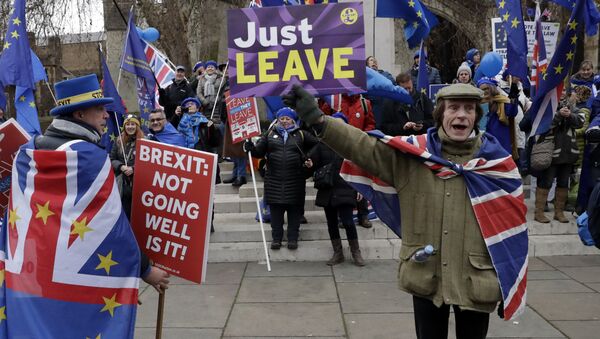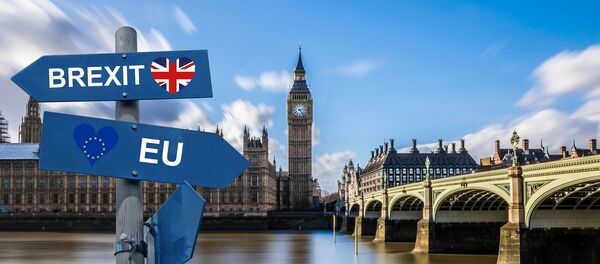"Why would there be an extension without a reason? We have been in discussions for quite a long time now. There needs to be something specific to justify an extension … A short extension: why not, if there is a good and credible reason … So far, we are still waiting for a proposal from London. It’s really a British initiative which has to come. And it has to be supported domestically in the UK," Loiseau said ahead of the meeting with UK Brexit Secretary Stephen Barclay, as quoted by The Guardian.
READ MORE: Extending Article 50 'Would be Disastrous for the Future of the UK' — Analyst
She pointed out the need to avoid unnecessary uncertainty linked to the current situation around Brexit.
"Everything we are living through is unprecedented and we clearly don’t want to lecture. But the clock is really ticking and I do think it would have been better for people and businesses to live in more certainty than they are today," the minister noted.
Loiseau also stressed that during the Brexit negotiations the United Kingdom had outlined what it did not want but had not explained what it really wanted.
"We have not heard proposals, ideas or initiatives coming from the British government to overcome the current difficulties. We stand ready for talks and reassurances on the idea that the vocation of the Irish backstop is to be temporary," the minister said.
This comes after in late February, UK Prime Minister Theresa May said that the UK parliament would vote on a no-deal Brexit in March, if the government's plan on the issue was rejected, and if a no-deal option was voted down as well, the vote on Brexit extension would be held. Commenting on the initiative, French President Emmanuel Macron said that any extra time for the renewed negotiations between London and Brussels could only come with a "clear objective" as the end goal.
The United Kingdom is set to leave the European Union on March 29. While London has managed to negotiate a withdrawal deal with Brussels, the UK parliament has been refusing to endorse the deal due to the controversial provision on the Irish border backstop, contributing to fears of a no-deal Brexit.



